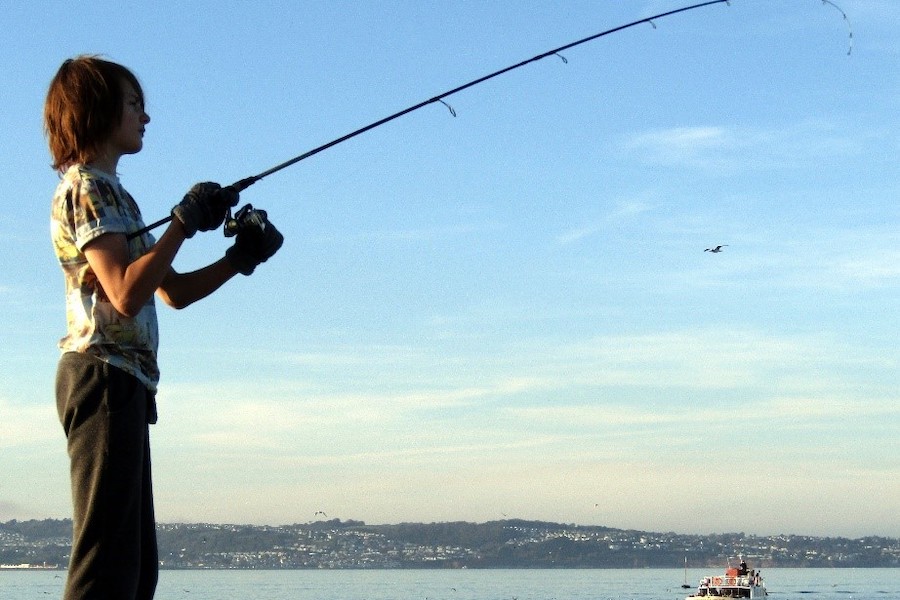
Campaigns
Angling Trust Publish Report on Socio-Economic Value of Sea Angling
The Angling Trust has published a report today on the social and economic contribution marine recreational fisheries provide to local and national economies. You can download the report here.
The report focuses on recreational sea angling and sheds light on the benefits it delivers through a range of case studies. From health and wellness benefits to creating jobs and nature connectedness to supporting local businesses, the value of recreational sea angling has often been overlooked by policymakers and others within the marine environment.
As recreational sea angling is recognised as a legitimate stakeholder within UK fisheries management under the Fisheries Act (2020) and subsequent policy emanating from the Act, policymakers must recognise the sector’s significant contribution.
The socio-economic value of recreational sea angling is relatively understudied by comparison with other marine users. The Angling Trust hopes that the government will invest funds into facilitating research to further evidence the sector’s role.
This report provides an overview of the socio-economic value of recreational sea angling and a segue for promoting the contribution the recreational sea angling sector makes up and down the country.
The Angling Trust aim to work collaboratively with the sector, academics and policymakers to build upon this report moving forward and to raise the profile of recreational sea angling as a key stakeholder within the marine environment.
Hannah Rudd, Policy & Advocacy Manager at the Angling Trust, said, “Through spending time by the sea, anglers benefit from the ‘blue mind’ effect that the ocean provides. They feel better mentally and physically and develop a relationship with the marine environment that can last a lifetime. For many, sea angling is a form of therapy from the chaos of everyday life and an outlet for stress. The sea angling sector also contributes significantly to local and national economies both directly and indirectly through the tackle trade, angling tourism, charter boat operations and coaching – to name just a few. Species like sea bass and bluefin tuna are flagship species for the recreational angling community, which can generate huge sums for the economy whilst also facilitating research, conservation and high angler satisfaction.”
Malcolm Gilbert, Angling Trust Marine Advisory Group Member, said,
“The UK is lagging well behind other advanced countries in recognising the legitimacy of recreational marine angling. Countries such as Australia, New Zealand, USA and Canada in particular have long recognised the economic impacts from recreational angling and fisheries managers have been better prepared to make evidence based decisions that favour recreational exploitation of public marine fishery resources. After decades of being ignored and discriminated against, getting the recreational angling community to engage with management issues will take time, but over the long term, participation by recreational anglers in determining fisheries policies will bring significant socio-economic benefits to coastal communities plus greater sustainability to marine fish stocks.”
You might also like

SENSAS FUTURE NETWORKS DO THE DOUBLE DOUBLE IN YOUTH…

NATIONAL GLORY FOR RAMMY AT LINDHOLME

Three British record fish claims ratified

Making plans for kids and holiday activities? Fun, safe…

Get Fishing Fund – Funded Project: Fishing Opens New…

Climate change fuelling dangerous river pollution across England and…

NEW BLOG: The best thing about fishing – from…

Ethan gets his Gold Get Fishing Award – young…

Summer of Fishing 2025 is here – get into…

Get Fishing Awards were at Bristol Festival of Nature…

VIDEO: It’s not all about the fishing… Check out…

ENGLAND TAKE GOLD IN HOME NATIONS BOAT CHAMPS

SENSAS FUTURE NETWORKS DO THE DOUBLE DOUBLE IN YOUTH…

NATIONAL GLORY FOR RAMMY AT LINDHOLME

Three British record fish claims ratified

Making plans for kids and holiday activities? Fun, safe…

Get Fishing Fund – Funded Project: Fishing Opens New…

Climate change fuelling dangerous river pollution across England and…

NEW BLOG: The best thing about fishing – from…

Ethan gets his Gold Get Fishing Award – young…

Summer of Fishing 2025 is here – get into…

Get Fishing Awards were at Bristol Festival of Nature…

VIDEO: It’s not all about the fishing… Check out…

ENGLAND TAKE GOLD IN HOME NATIONS BOAT CHAMPS

SENSAS FUTURE NETWORKS DO THE DOUBLE DOUBLE IN YOUTH…

NATIONAL GLORY FOR RAMMY AT LINDHOLME

Three British record fish claims ratified

Making plans for kids and holiday activities? Fun, safe…

Get Fishing Fund – Funded Project: Fishing Opens New…

Climate change fuelling dangerous river pollution across England and…

NEW BLOG: The best thing about fishing – from…

Ethan gets his Gold Get Fishing Award – young…

Summer of Fishing 2025 is here – get into…

Get Fishing Awards were at Bristol Festival of Nature…

VIDEO: It’s not all about the fishing… Check out…









